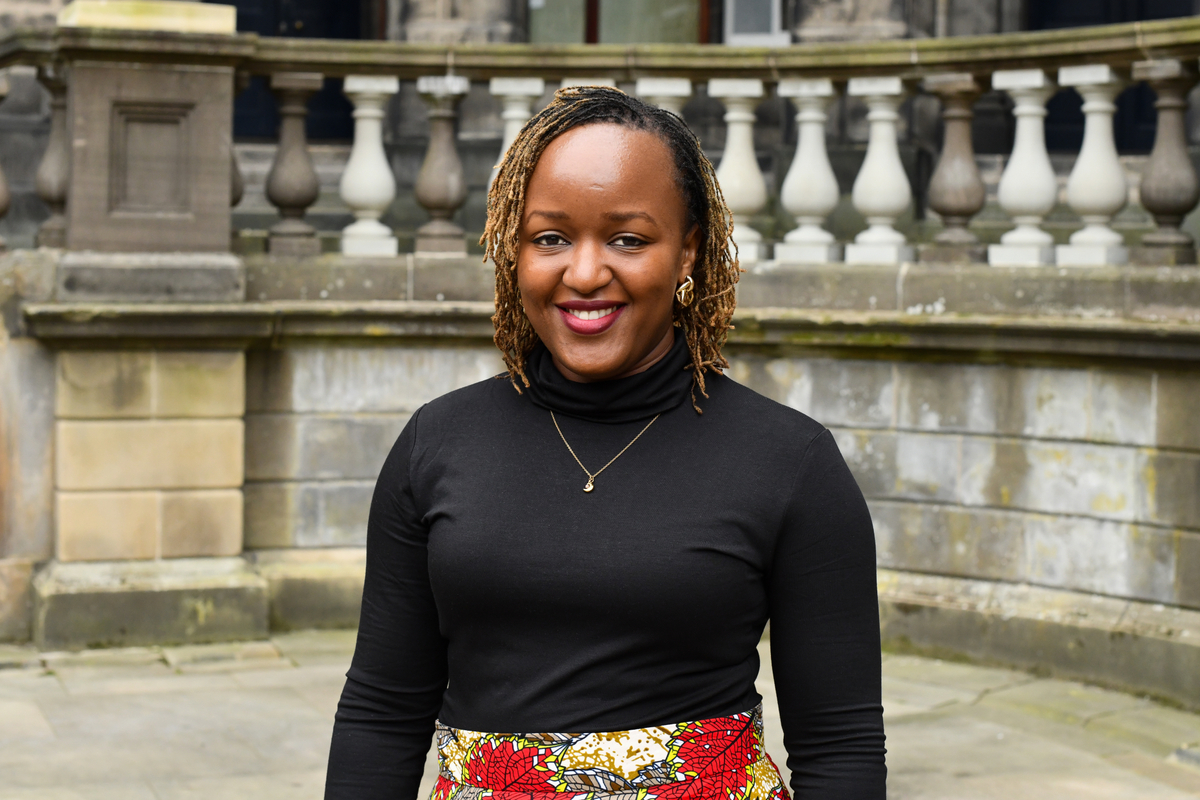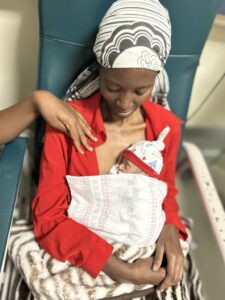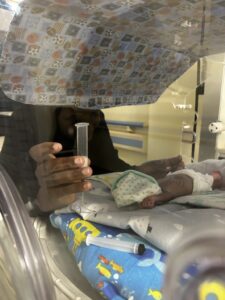Liquid Gold: Tracy Ahumuza and the ATTA Breastmilk Community


When a baby is born with a low birth weight, preterm or medically fragile, their lifeline could be in breastmilk from another mother.
This was the case for Tracy Ahumuza and her daughter, Alyssa, who required surgery at birth and needed quality care and life-saving colostrum, the very first form of milk produced when mothers start breastfeeding. Colostrum supports a newborn’s immune system and gut function soon after birth and supports a baby’s heart, bones, and development. It is often called “liquid gold,” and is highly valued for its lifesaving abilities.

Pre-term babies have great need for breastmilk to assist in their growth
Like many mothers, Tracy’s breast milk was slow to come in after giving birth and she was not supported in her breastfeeding journey, nor told how donated breastmilk could increase the chances of a fragile baby’s survival. Alyssa passed away just days after being born.
Her tragedy, she later discovered, was shared by many mothers in her country, Uganda, and may have been prevented if she, and others like her, had access to donated breastmilk.
Tracy’s search for answers in her community led to her discovery of milk sharing, which facilitates breastmilk donations and builds trust by testing donors for diseases that could affect their milk. This prompted the start of the ATTA Breastmilk Community in 2021, which Tracy founded with the initial aim of testing breast milk donors and connecting them with recipients.
She registered the company as a non-profit, secured support from a telemedicine company to facilitate testing and researched safe transport for breast milk to preserve its life-saving properties.
As ATTA grew, so did demand. More women stepped in to donate breastmilk and Tracy would get phone calls day and night from anxious parents searching for liquid gold. In the early days of ATTA, she would hop in her car and deliver the milk whenever it was needed.
The company was initially sustained by donations, fundraising, and Tracy’s personal finances. Along this journey, Tracy also came across more frail newborns and continued to learn how swiftly and silently the shadow of neonatal death can darken a home’s doorstep.
Tracy continued to push ATTA forward, progressing from facilitating milk sharing to pursuing the capability to pasteurize breast milk, which is considered the “gold standard” in the field. She learned that pasteurizing and milk handling systems cost up to $100,000. The goal increased the pressure on Tracy, who had to run ATTA, balance a full-time job, and maintain a core team of staff critical to ATTA’s success. This was all while carrying her grief, which was still deeply raw.
Through crowdfunding and donations, ATTA was finally able to purchase a small breast milk pasteuriser. It was hugely rewarding work, but exhausting.
“There have been moments I nearly threw in the towel; I’m like, ‘Tracy, there’s no way you could ever do this,’” she recalls. “If it were up to me, I would have given up many times already.”

ATTA Liquid Gold delivery
Now in its third year, ATTA also provides training and education to health workers on lactation management, safe handling, transportation, and dispensing of donor milk, and, most importantly, advocating for milk banking and promoting the benefits of extended breastfeeding.

Pre-term baby receiving breastmilk donated by ATTA
To date, ATTA has collected and dispensed around 600 litres of donor breast milk to over 400 newborn babies with support from its network of donors and various organizations. Tracy plans to continue building the business using the expertise and knowledge she has gained pursuing her Master’s in Entrepreneurship and Innovation as a Mastercard Foundation Scholar at the University of Edinburgh in Scotland.
She would like to conduct a wider public health campaign on the benefits of breastfeeding. For example, mothers often have to wean their babies as they return to work. But through ATTA’s support, some have gone on to breastfeed beyond the 60 working days of paid maternity leave in Uganda, a benefit to both the mother’s babies and ATTA’s tiny “clients.”
“In the beginning, I remember there was this mother who really badly wanted to donate, and her breast milk supply was quite low. She insisted. She’d keep giving us these really small bags [of donated breastmilk. But slowly, her bags kept increasing. You see, the more she donated, the more [milk] she made, so she was able to both feed our babies as well as breastfeed her child exclusively for the recommended six months,” says Tracy.
She also recounts driving in the middle of a rainy night to deliver breast milk to a father of preterm triplets whose wife struggled to breastfeed while in the throes of postpartum depression. The triplets are now three years old. In another story, a mother ended up donating up to 70 litres of breastmilk within six months.
“There’s no way in my wildest dreams I could have done any of these things by myself,” says Tracy. “I’m most proud of the humanity of the people who have worked with us, who have understood our dream. Many of them have shown up for days, months, weeks, [with] no remuneration.”
ATTA’s story has since been shared worldwide, and the knowledge and experience its staff have gained are now being shared with the Ministry of Health in Uganda. Amidst all of this, Tracy’s focus remains razor-sharp.
“I am committed to [ensuring] equitable access to donor human milk to anybody who needs it. The babies that we deal with are very frail, extremely frail. We need to start where we are with what we have,” she says.


